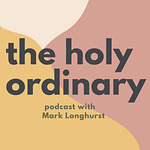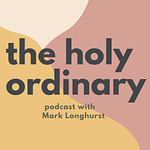The Holy Ordinary Podcast is a “pop-up” podcast that explores the contemplative dimensions of everyday life. Every so often, host Mark Longhurst interviews authors, thinkers, activists who illuminate the sacred, the just, and the beautiful in the midst of the ordinary. This episode's guest is Lerita Coleman Brown. Brown is a retreat leader, a spiritual director, and the author of the book “What Makes You Come Alive: A Spiritual Walk With Howard Thurman.” Brown has spent years studying the life and wisdom of Howard Thurman, and she shares her learning in a way that impacts our everyday quest for God. Topics covered include: Thurman’s nonviolence, his influence on Martin Luther King Jr., and how he understood mysticism as a creative response of life. Here is a lightly-edited excerpt of Brown’s reflections:
Howard Thurman is such an extraordinary human spirit. I did not learn about him until later in my own life. I was actually very shocked and dismayed because we were both in Northern California in the early 70s and I could have met him. But I knew nothing about him. And I came to understand as I began to read more about him, as well as to give presentations about him, that there were a lot of people that also didn’t know. So there was something in me that really was very curious, but also found that he was a very affirming figure, particularly with respect to contemplative spirituality.
Howard Thurman was born on November 18th, 1899 in Daytona Beach, Florida. He was a person who felt very connected to the outdoors, and spent a lot of time outdoors. He lost his father when he was about seven. I think that was one of the things that perhaps maybe drove him out near the ocean, to walk along the ocean, or to be among some of the many trees there. He was raised primarily by his mother and grandmother, his grandmother being Nancy Ambrose, a former slave, who taught him that he was a child of God. And she wanted that to be his primary source of identity because she knew as a young Black child he was going to certainly encounter a very hostile Jim Crow South eventually, and she wanted him and his life and his thinking to be rooted in God.
He spent much of his young years in Daytona Beach having these kind of mystical experiences outside. But he was also very bright and read a lot. He read to his grandmother out of the Bible. And at that time, Black children could only go to school until the seventh grade, which de facto prevented them from going to high school. So the community got together. He was privately tutored and went off to the Florida Baptist Academy, which is now Florida Memorial College, was an extraordinary student and graduated valedictorian of his class. As a result, he won a full scholarship to Morehouse College in Atlanta. He graduated valedictorian of his class. There’s a myth that he read every book in the library at the time. And then decided that he really wanted to go into the ministry.
So he was accepted at one of the few seminaries that were taking Black students at the time, Rochester Theological Seminary, and again, he had an extraordinary career there and graduated valedictorian of his class. Soon after, he got married to Katie Kelly, and they moved to Oberlin, Ohio, where his first assignment was at the Mount Zion Baptist church. He was attending a meeting one night, became a bit restless, came out of the meeting, and picked up a book called Finding the Trail of Life, which had been written by the eminent Quaker mystic Rufus Jones.
He felt like Rufus had just written his own life on paper and in this book because Rufus Jones also had mystical experiences as a child. So he tracked him down and sent a message through someone. And Rufus Jones contacted him and allowed him to come to Haverford College as a special student for a semester to study mysticism.
Thurman didn’t know, coming from a Baptist seminary, that there was actually even a field of mysticism to study. So he enjoyed that. Also, he was introduced to a kind of affirmative mysticism, which is based on the Quaker idea that we all carry God within us. And when you go down into God, you come up in community or unity or oneness. So he’s very moved by this and later began to write about it, and was highly criticized for that because people didn’t really understand mysticism.
He decided to start talking about mysticism and social change because his basic idea was that God had created one creation, and that we’re all connected. He sort of felt like that when you have these creative encounters, which is what he renamed mysticism or mystical experience, or religious experiences, or these moments with God, that it should shake something loose inside of you that’s keeping you separate from other people.
As a result, you sort of come out of that experience wanting to continue to help to restore God's beloved creation. He spent much of his lifetime sort of making those connections. He wrote a very famous book, Jesus and the Disinherited, because he basically had his own interpretation of the Gospels. The book really inspired a number of theologians and activists, including Bayard Rustin, James Lawson, Pauli Murray, and Martin Luther King Jr. It was sort of like a blueprint for the civil rights movement.
He just had an extraordinary life. He started the first intentional interracial church in San Francisco. He spent six months in India in the 30s and met Gandhi at that time. He became the first Black faculty member and dean of the Marsh Chapel at Boston University, where he also once again crossed over with King.
Listen to the episode for more!










Share this post